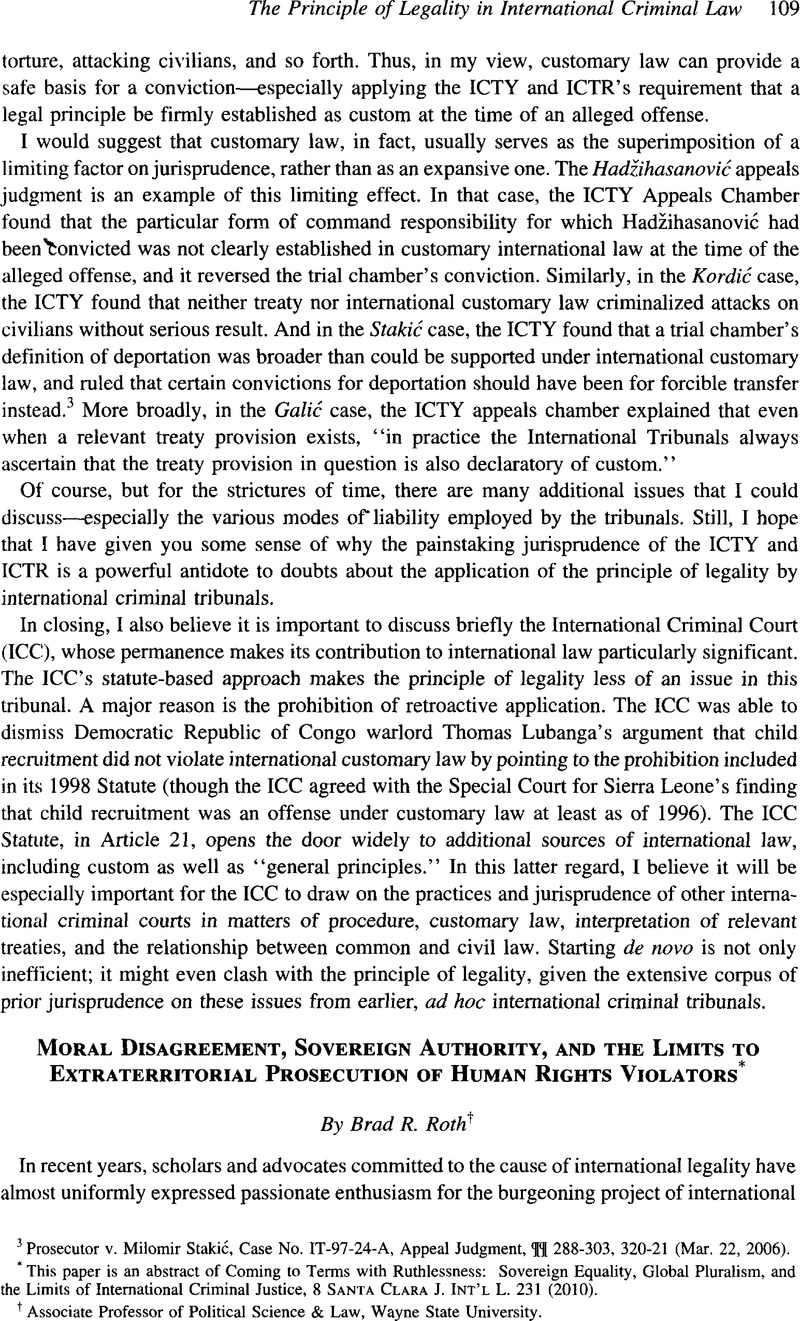No CrossRef data available.
Article contents
Moral Disagreement, Sovereign Authority, and the Limits to Extraterritorial Prosecution of Human Rights Violators*
Published online by Cambridge University Press: 28 February 2017
Abstract

- Type
- The Principle of Legality in International Criminal Law
- Information
- Copyright
- Copyright © American Society of International Law 2009
Footnotes
This paper is an abstract of Coming to Terms with Ruthlessness: Sovereign Equality, Global Pluralism, and the Limits of International Criminal Justice, 8 Santa Clara J. Int’l L. 231 (2010).
References
1 For contrasting perspectives on the tendency toward such gap-filling in international criminal law, see Schaack, Beth Van, Crimen Sine Lege: Judicial Lawmaking at the Intersection of Law and Morals, 97 Geo. L. J. 119 (2008)Google Scholar; Robinson, Darryl, The Identity Crisis of International Criminal Law 21 Leiden J. Int’l L. 925 (2008)CrossRefGoogle Scholar.




